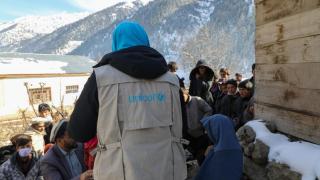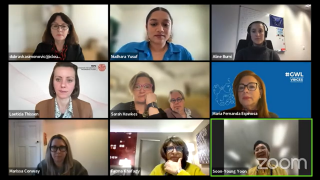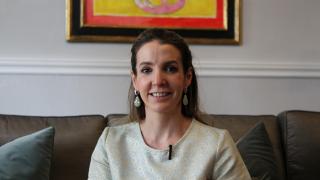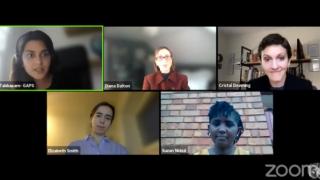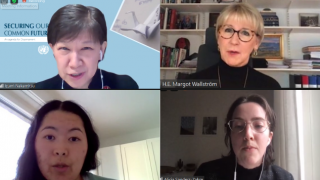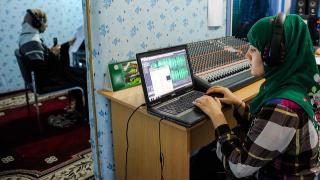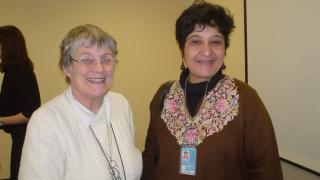
18 years on from the 1995 Beijing World Conference on Women with its Platform for Action on women’s empowerment, the problem of discrimination and inequality amongst women and girls continues. Indeed horrific brutality occurs to some extent in all countries and all of society bears responsibility for allowing it to continue.
Each year the Commission on the Status of Women (CSW) meets with representatives of UN Member States to evaluate a women’s equality issue, with a view to agreeing on a final outcome document, the Agreed Conclusions. Last year there was dismay all-round when CSW failed to reach a consensus. This year at the 57th session, with the particularly important priority theme ‘Elimination and prevention of all forms of violence against women and girls’, (particularly topical given the number of recent incidents of violence against women and girls (VAWG) in the international news), there was a determination to do all possible to have a good, strong outcome document agreed. Lobbying was intense.
UK NGOs have been developing a coordinating body, the ‘UK NGO CSW 57 Liaison Group’. I was representing UNA-UK in my role as the Vice-Chair of the UNA Women’s Advisory Council (WACUNA). The networking led by this group was very efficient and effective in its lobbying, and improved wording suggestions for the documents. The UK NGOS were also fortunate in having good communication with the UK government delegation. The UK Mission in New York, Helene Reardon-Bond and Charles Ramsden for the Government Equalities Office and two MPs briefed the UK NGOs. The UK officials also met in a smaller group including Jan Grasty (President of UN Women UK) and the co-chairs Annette Lawson and Zarin Hainsworth of the UK NGO CSW 57 Liaison Group. There were EU co-ordination meetings too.
I was fortunate to be able to attend the NGO CSW Forum Consultation Day where Michelle Bachelet, Under-Secretary-General and Executive Director of UN Women, spoke on a number of issues: trafficking women, the role of men, best practices to prevent VAWG, and training in communications and social media. Ms Bachelet has played a vital role in establishing UN Women and was pivotal in pushing for the Agreed Conclusions document. It was therefore incredibly sad at the end of the conference when she announced that she is stepping down as Executive Director of UN Women to return to Chile.
There were however cheers and great sighs of relief when finally the outcome document was agreed. In her closing statement, Michelle Bachelet said this was an historic occasion, as it sets global standards for action to prevent and end “one of the gravest violations of human rights in our world, the violence that is committed against women and girls.” She added: “Yes, we did it!”
Some positive gains were made: the Agreed Conclusions included for the first time that emergency contraception was a necessary service for women’s health. This issue of sovereignty was delicately avoided (as many felt that would have allowed countries to invent their own rules and avoid global ones). Some topics NGOs worked hard on however were omitted, for example the protection of widows.
States now need to implement the agreement. The challenge will be to focus on prevention and working to change the attitudes, culture and community structures that normalize VAWG. Adequate resources should be provided, to implement laws that protect women and to protect victims from reprisals. Research is also needed to establish how to best assist fragile states which are weakened by conflict, where sexual violence is a serious issue. Finally, education of both boys and girls needs to inculcate appreciation of integrity, justice, and acting with moral courage.
UNA-UK will discussing how best to achieve these aims at the Policy Conference in April, at which WACUNA will make a presentation on women’s rights in relation to the Millennium Development Goals. WACUNA will also be meeting with other NGOs during the year and considering the post-2015 development goals. Indeed we are already looking ahead to next year’s CSW the theme of which will be ‘Challenges and achievements in the implementation of the Millennium Development Goals for women and girls’.
Sally Spear is a member of UNA-UK and Vice-Chair of the UNA Women's Advisory Council. She is pictured above with Dr. Jean D’Cuha, Global Policy Adviser for Employment and Migration, UN Women.

